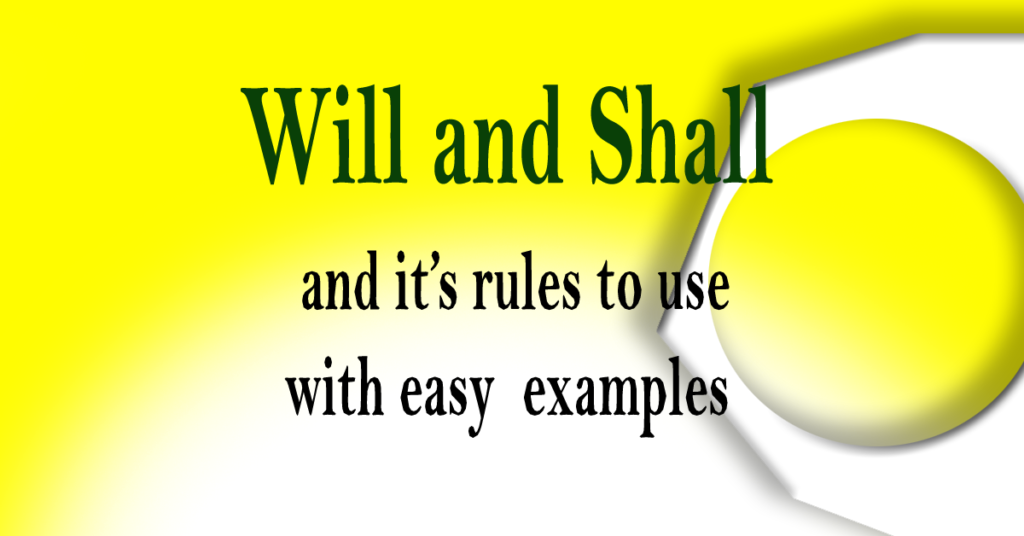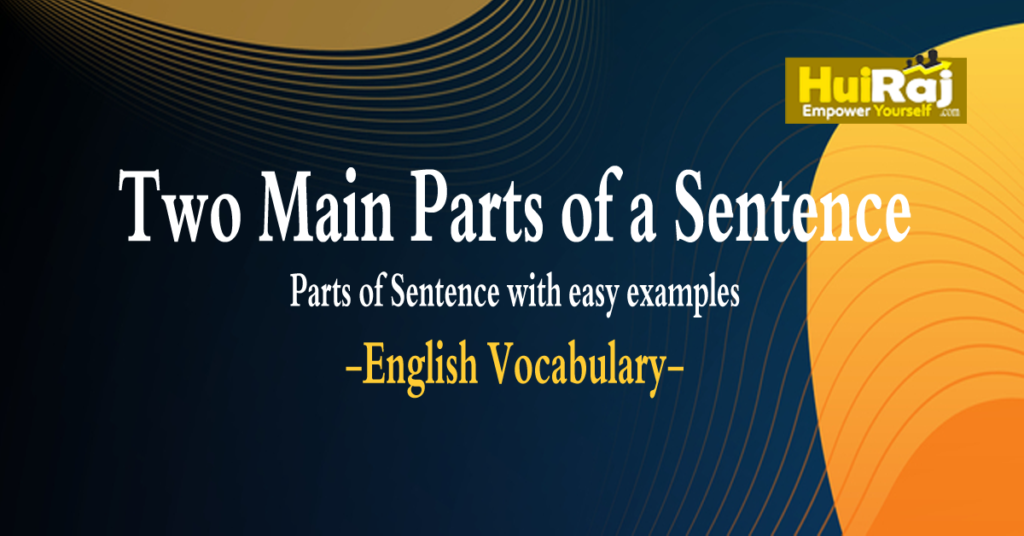What are modals?
The Auxiliary verbs like ‘will, would, shall, should, can, could, may, might, must, need, ought to, used to, and dare’ are called the modals. These verbs are primarily used to express meanings such as necessity, obligation, advice, permission, certainty, probability, ability, etc. The modals do not usually have a time restriction. It can refer to the present or the future in the same form. See the examples.
- He may be here now. (Present)
- He may come tomorrow. (Future).
But in certain situations, could, would, should, and might are past forms of can , will , shall and may respectively.See the examples examples.
- I can lift this box now. (Present)
- I couldn’t do it yesterday. (Past)
Rules for using modals and Auxiliaries.
- in the above examples under the column Modals, the modal auxiliary ‘can’ has a single form for all subjects, whereas the other auxiliaries have different forms.
- The modal auxiliary is followed by a bare infinitive i.e, the infinitive without ‘to’. We say ‘I will read’ but not “
I will to read” (incorrect). - Two Modals Auxiliaries cannot go together in a verbal group but two primary auxiliaries can. For example.
- I must
canclimb a tree. (false). - We have been learning English for six-year. (correct).
- I must
- The modal auxiliary has no non-finite form, as it is always the first verb in the verb group. For examples,
- I can lift the box. (Correct)
I lift can the box. (Incorrect)
- The modal auxiliary is followed by the bare infinite form of the full verb. But the primary auxiliary may be followed by
- (i) the to-infinitive form
- (ii) the –ing form or
- (iii) the past participle form.
- The modal auxiliary unlike other verbs has no –s in the third person singular in the present tense. For examples,
- He wants/likes to speak English. (correct)
- He can lift the box. (correct)
- He cans lift the box. (incorrect).
USES OF MODALS
Modals or Modal Auxiliaries usually show how we look upon an activity or state. For Example:
- I can lift the box. (=I have the ability to lift the box.)
- It may rain. (=It is probable that it will rain.)
- He will help you if you ask him. (= He has the willingness to help you if you ask him.)
In the above examples. Modals tell us whether the speaker considers the activity or state to be probable or possible. Or what he/she thinks of someone’s ability or willingness.
Rules for using modal ‘Will’
(A). We use ‘will’ for Plain Future. Study the examples.
- The train will take you to Kolkata.
- The school will reopen tomorrow.
(B). We use ‘will’ for Willingness. Study the examples.
- I will help you as far as I can.
- He says he will lend me five hundred rupees.
- He won’t (will not) object to our proposal.
We can use 'won’t' in place of 'will not" in Spoken English or Informal English. Here won’t (will not) means unwillingness.
(C). We use ‘will’ for Making a request/giving an order. Study the examples.
- Will you do me a favour? (=I request you to do me a favour.)
- Will you shut up? (=I order you to shut up.)
(D). We use ‘will’ for Present habit. Study the examples.
- They will talk for hours about clothers and films.
- When the cat is away, the mice will play.
(E). We use ‘will’ for Probability. Study the examples.
- He will be at home now.
- That will be the postman.
(F). We use ‘will’ for prediction. Study the examples.
- It will rain tomorrow.
- They will win, I am sure.
(G). We use ‘will’ for Commnd. Study the examples.
- You will see that the chairs are arranged in good time.
- You will go tomorrow evening and receive the parcel.
(H). We use ‘will’ for general facts. Study the examples.
- Oil will float on water.
- Pigs will eat anything.
Not that the above sentences are very similar to the meanings of the following sentences respectively.
- Oil floats on water.
- Pigs eat anything.
(I). We use ‘will’ for Determination. Study the examples.
- I will do it whatever happens.
- I will accomplish whatever I want.
Rules for using modal ‘Shall’
(A). We use ‘Shall’ for Plain Future. Study the examples.
- I shall be fifteen next year.
- We shall be back in an hour’s time.
Note that 'shall' is usually used with "I or We", and most often with "We". But "Will" can be used with any subject.
(B). We use ‘Shall’ for Permission. Study the examples.
- Shall I open the window?
- Shall I go home now?
(C). We use ‘Shall’ for suggestion. Study the examples.
- Let me carry your bags, shall I?
- Let’s catch the bus, shall we?
(D). We use ‘Shall’ for Promise. Study the examples.
- I shall take you out on Monday. =(I promise to take you out on Monday)
- My dear friend, I shall come, be sure. =(I promise to come, I assure you).
(E). We use ‘Shall’ for Prediction. Study the examples.
- I shall (will) miss you. Here ‘will’ is possible.
(F). We use ‘Shall’ for Speaker’s Wishes. Study the examples.
- I shall help him.
- You shan’t go.
(G). We use ‘Shall’ for Giving an order (with 2nd and 3rd person). Study the examples.
- You shall not come here again.
- Nobody shall leave without my permission.
The following facts should be noted: Shall and will both are possible in the following examples;
(i) I Will/shall go to Rourkela tomorrow.
It is a declarative sentence. In declarative sentences, When the subject is "I or We", "shall or will" are interchangeable. There is no meaning difference between them here.
(ii) Look at the following examples:
- Ramesh will do it. (simple future)
- Ramesh shall do it. ( I shall see to it that Chikul does it.)
In the above declarative sentences, the subjects are not / or we. So shall and will have different meanings.
(iii) Study the following examples:
- Will I go abroad? (Please tell me whether I will go abroad or not.)
- Shall I go abroad? (Do you want me to go abroad?)
Here in the above examples, we have yes/no interrogative sentences. However, will and shall have different meanings.
Exercise-1 for Modal Auxilires (Will/Shall)
Study the following sentences. Write against the sentences whether they tell us about the future, request, order, suggestion, willingness, habit, promise, etc, The first one has been done for you.
- It will rain tomorrow. (predication)
- Will you come with me tomorrow morning?
- Shall we go out to eat tonight?
- It will be much coder if it rains.
- I am tired. Shall we have a rest?
- You shall have the money tomorrow. I promise you.
- Tigers will not eat grass.
- Shall I get the tickets for you?
- Will you study at a college?
- You will need a lot of money.
- Oil will not mix with water.


